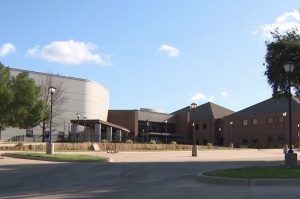Beware the nationalism trap (part 1)
The evangelical church must not fall into the nationalism trap.
I say this as one who has worked in both politics and church.

The nationalist allure is like bait drawing prey to a well-concealed trap. Religious leaders have for centuries been lured in and hobbled in the jaws of the trap so that they cannot carry out their God-given mission of advancing the Gospel of the Kingdom in all the world. (Matthew 24:14)
But neither do I embrace the other extreme, which is a radical separation of the church from any political involvement. In addition to its pastoral call, the church must also function as a prophetic voice in society. Both functions require political engagement.
The church must not become an “estate” within the power structures of society, as the Catholic Church was in France in the eighteenth century, leading up to that nation’s bloody revolution.
In the nineteenth century churches in the Deep South of the United States became lackeys of the distorted nationalism of that culture. Many gave theological backing for the political structures that maintained slavery, a practice not from the heavenly Kingdom, but from hell itself.
Thus, history shows that the church becomes a mere extension of the state when it falls into the trap of nationalism.
Yet it is undeniable that Judeo-Christian biblical principles were at the core of America’s founding, and that clergy were among the framers and signers of founding documents.
Alexis de Tocqueville, in Volume II of his book, Democracy in America, wrote that: “In the United States religion is... commingled with all the habits of the nation and all the feelings of patriotism; whence it derives a peculiar force.”
But the church, no matter its doctrinal beliefs, must not follow the sniff of the nationalist bait and fall into the snare, because it is the seductive scent of power that diverts the church from its God-given Kingdom mission.
There is a type of engagement between church and politics that is not only appropriate but needed: Organic involvement rather than institutional dominance.
Organic involvement means that Christian individuals, including clergy, could and should be involved in politics as part of their “working out” their witness in the public square. (Philippians 2:12-13)
Institutional dominance occurs when the church tries to become a political movement itself. Again, this is just one more grab for power. Rather than sprinkling the “salt” of heavenly Kingdom values and worldview on the nation, institutional dominance is the attempt to reshape society and the political sphere by pounding it with the saltshaker.
The church's great mission in this world is to be the "embassy" of the Kingdom of God (2 Corinthians 5:20). The church is to represent the interests of Christ's Kingdom within all the spheres of society. Political interaction is essential, but mainly through individual believers engaging in the political process.
Rather than institutional dominance the appropriate, biblically sanctioned strategy is described in Zechariah 4:1-7 and modeled practically in the relationships of the prophets Daniel and Zechariah with rulers of Babylon, beginning with Nebuchadnezzar, and including Belshazzar, Darius, and Cyrus.
During the reign of Darius over Babylon, Zechariah received a powerful vision from the Lord. (Zechariah 4:1-7). Upon their liberation by King Cyrus Zerubbabel led more than forty thousand of his fellow Hebrews home to the Promised Land. Back in Jerusalem, Zerubbabel became the civil leader, the governor of Judah – then a Persian province – and Joshua served as the high priest.
Zerubbabel, Joshua, and their people faced an enormous task in Jerusalem. As they rounded the hills toward the end of their long journey, perhaps they saw what appeared to be yet another mountain in their path. As they got closer, they realized it was the rubble from Solomon’s great Temple, destroyed by the Babylonian invaders years earlier.
Most of the returnees had been born in Babylon but had heard all their lives of Jerusalem and the longing to return there from older generations. Many may have wondered: Is this ruin what the old-timers were dreaming of?
Zerubbabel, the civil leader, and Joshua, the high priest, knew they must work together to mobilize the people to restore the Temple, the city, and its walls. The task, however, was beyond their capacities.
They would succeed and in doing so provide important principles and truths that will span history. Among them is a biblical methodology for the relationship of church, politics, and state, and their partnership in establishing and maintaining civilization.
It was imperative that Zerubbabel and Joshua not collapse in a heap of despair themselves. They occupied the two God-ordained offices of authority that together could lead the nation. If they allowed the immensity of the job to cause them to shrink back, there was no one else among the people recognized as being in an office of authority from which to lead.
Zechariah 4:1-7 describes the scenario vital for our own times. The Lord’s message to Zerubbabel was that the Spirit of God Himself would be the power that would overcome the mountain of rubble.
In the twenty-first century, we stare at the moral, spiritual, philosophical rubble that was once the best of Western Civilization. Many people are overwhelmed at the extent of destruction, while others, in hapless delusion, dance over and through the ruins. Those who understand the tragedy in the mountain of debris are overwhelmed and wonder if greatness can be recovered.
It can, but it will take both church and state, and healthy interactions between the two. The bottom line for both is still, “Not by might, nor by power, but by My Spirit says the Lord of hosts.” (Zechariah 4:6)
We explore this in Part 2.
Wallace B. Henley, a former White House and Congressional aide, is the author or co-author of more than 20 books. His latest is Who Will Rule the Coming ‘Gods’: The Looming Spiritual Crisis of Artificial Intelligence, just released by Vide Press.
For media inquiries, contact: ChristianPost@pinkston.co





























